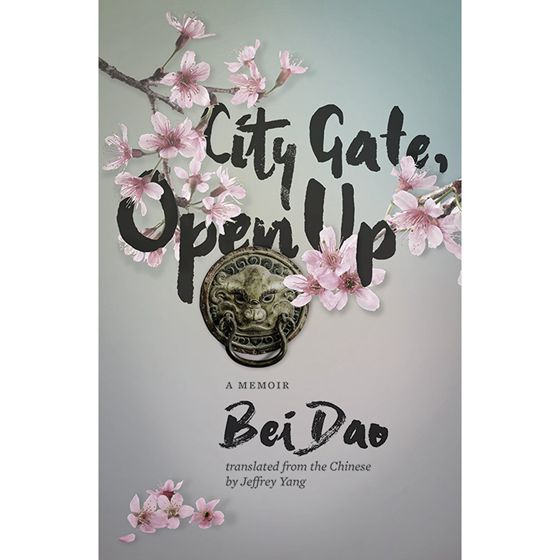Review of 'City Gate, Open Up' by Bei Dao
- By Jie Xi
 0 Comment(s)
0 Comment(s) Print
Print E-mail China.org.cn, July 3, 2017
E-mail China.org.cn, July 3, 2017
 |
In the preface to "City Gate, Open Up," Chinese poet Bei Dao writes that it is a memoir covering his childhood and adolescence inspired by a 2001 trip to his hometown of Beijing to visit his dying father.
After an absence of nearly 13 years, the changes he found in the city filled him with a desire to recreate the Beijing he knew when growing up, to "use my Beijing to refute the Beijing of today."
In addition, the fact he was born in 1949, just two months before the founding of the People's Republic of China, means that Bei Dao's childhood spanned a period of time inherently interesting for anyone curious about the early years of the PRC.
In the book's earliest chapters - entitled "Light and Shadow", "Smells"and "Sounds"- the author recounts the sensory details that made up his early life, including an especially interesting passage on the introduction and spread of electric lighting in post-Liberation Beijing.
It's a change Bei Dao laments, and one that seems to act as a stand-in for any of the other transformations China has experienced throughout its development. He wrote: "Fortunately, the power frequently went out. Once it did, houses here and there would glow with candles, as if remembering and mourning a lost childhood."
Next comes a series of chapters on the objects – predominately toys, furniture, and records – that Bei Dao looks back on with nostalgia, some of which, like electric lighting, led to significant lifestyle changes for certain levels of Chinese society.
After objects, he covers hobbies, and, as with the most of the book, the chapter titles leave little room for mystery regarding what they cover: "Fishing", "Swimming", "Raising Rabbits"and "Reading Books".
In the second half of the book, its progression becomes more linear, with less of a given theme. In chapters named after the various schools he attended, Bei Dao takes the reader through his earliest literary endeavors as an elementary school student to his experiences during the Cultural Revolution as a teenager.
His memories of the Cultural Revolution are easily the most interesting parts of the book and give a solid sense of the era's turmoil and confusion. Finally, the book comes full circle back its beginnings, with Bei Dao reminiscing on his father's life and final days in Beijing.
While "City Gate, Open Up" does contain sections that the average reader curious about China in the decades after Liberation will find engaging, much of the book seems rather self-indulgent.
Many of Bei Dao's memories stand in isolation from larger historical currents, coming and going without contributing to the greater scheme of the book. Quite frankly, the reader doesn't get much out of Bei Dao's recollections regarding his favorite childhood sweets, for example.
The book also too often relies on lists – cataloguing neighbors, food, teachers, etc. The technique is an easy one and can be tedious for the reader.
Also, the memoir would have benefitted from a more fluid construction. "City Gate, Open Up" feels as if it's made up of two separate books combined into one, with, as already mentioned, the first half structured around themes and the second following a more temporal progression.
Had Bei Dao blended the two halves into a single thread, the narrative flow would feel more natural and the chapters, especially the early ones, wouldn't have been weighed down by their lurching start and stop quality.
However, while the book has its flaws, it certainly also has its strong points and will be especially interesting for any reader curious about hearing a respected poet's experiences during the Cultural Revolution. And the moments when Bei Dao highlights the changes that have occurred throughout China's history also make the book a worthwhile read:
"Dusk fell as we said good-bye to our neighbors. An apartment building now stood on the former air-raid shelter. Reverse thirty years, those poplars await their felled fate; reverse forty years, those Taihu stones await their heaving onto a truck and their destination at the military museum under construction; reverse six hundred years, Zheng He leans on a balustrade, gazes out over the back garden, lights a lamp in the twilight, birds return to their nests, the thousand things return to silence."






Go to Forum >>0 Comment(s)